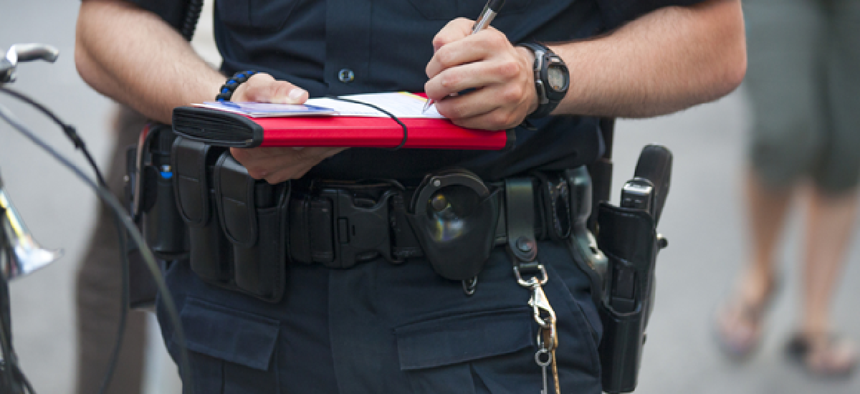Local police wrestle with success of license plate camera system


Connecting state and local government leaders
The police in Freeport, N.Y., started the program to spot stolen vehicles -- but now find it capturing much, much more.
Last November, the Freeport Police Department turned on its system of 27 cameras across the New York village to scan the license plates of cars driving around town. Using the information from those scans, the system sends alerts to police when stolen vehicles have been spotted or other violations noted. And if a crime occurs, video can provide information on who was on the road when it took place.
However, after the cameras were turned on, police found the system even more successful than they imagined. A litany of minor offenses (such as expired tags or suspended registration stickers) set off an average of 700 alerts per day. As a result, Freeport officers have written more than 2,000 court summons and impounded 500 vehicles since the cameras went live. The cameras have also led to the capture of about two dozen individuals wanted for other crimes.
Yet while many law enforcement agencies have struggled to manage the raw data camera systems can produce -- video-storage for a mid-sized police force's bodycams, for example, can require a terabyte or more per week -- Freeport found itself with another challenge: actually policing all those infractions.
The camera system itself cost $750,000, but police department overtime expenses jumped 20 percent as officers assessed each alert and decided how and when to respond. Freeport Police Chief Miguel Bermudez told the Associated Press that the department was forced to change its approach to the alarms because of the frequent activity. However, Bermudez and Freeport Mayor Robert Kennedy consider the program a success and may add more police officers dedicated to traffic and registration violations.
“In 2015, the crime has decreased in the Village of Freeport by 12.3 percent,” Kennedy told CBS New York.
The use of license plate readers by law enforcement has increased dramatically in recent years. A 2014 IEEE Spectrum report states 70 percent of police departments across the country are currently using license plate readers to some extent. And the datasets behind such systems are expanding accordingly: Last year, the New York City Police Department subscribed to a license plate reader database that contained 2.2 billion records.
Issues such as record keeping, access to archived information and broad-scale tracking of vehicles are issues that the American Civil Liberties Union has highlighting as more departments add the technology. Jason Starr, who works for the ACLU’s Nassau County Chapter, told CBS News he is concerned that the Freeport Police Department has not said who has access to the information.
"This is data that can be abused," Starr said. "There needs to be really tight measures on who has access to this information."
States and localities have different rules on what to do with the data collected and how long they can store it.
This article was changed Feb. 16 to correct a production error.




